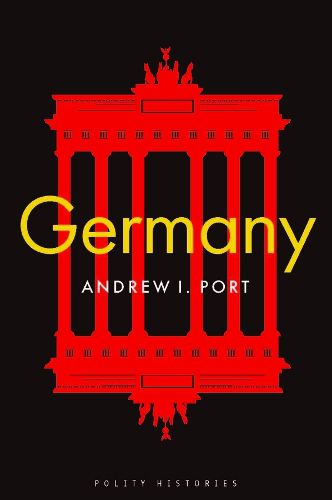Readings Newsletter
Become a Readings Member to make your shopping experience even easier.
Sign in or sign up for free!
You’re not far away from qualifying for FREE standard shipping within Australia
You’ve qualified for FREE standard shipping within Australia
The cart is loading…






Few countries are more haunted by the darker aspects of their history than Germany. Nazi crimes continue to cast a long shadow at home and abroad. Germans have nevertheless managed to put their violent, genocidal past behind them, creating a peaceful and prosperous democracy at the heart of Europe.
In this refreshing book, Andrew I. Port tells the story of that extraordinary transformation. Tracing the histories of the Eastern and Western halves of postwar Germany in tandem, he highlights their obvious differences and unexpected commonalities. This novel approach explains not only the country's many accomplishments since the fall of the Berlin Wall, but also the challenges it has faced - from the difficulty of unifying two distinct societies to violent forms of xenophobia and the rise of extremist parties. Whether the Federal Republic remains a stable and successful power is the new "German Question" of the twenty-first century.
$9.00 standard shipping within Australia
FREE standard shipping within Australia for orders over $100.00
Express & International shipping calculated at checkout
Stock availability can be subject to change without notice. We recommend calling the shop or contacting our online team to check availability of low stock items. Please see our Shopping Online page for more details.
Few countries are more haunted by the darker aspects of their history than Germany. Nazi crimes continue to cast a long shadow at home and abroad. Germans have nevertheless managed to put their violent, genocidal past behind them, creating a peaceful and prosperous democracy at the heart of Europe.
In this refreshing book, Andrew I. Port tells the story of that extraordinary transformation. Tracing the histories of the Eastern and Western halves of postwar Germany in tandem, he highlights their obvious differences and unexpected commonalities. This novel approach explains not only the country's many accomplishments since the fall of the Berlin Wall, but also the challenges it has faced - from the difficulty of unifying two distinct societies to violent forms of xenophobia and the rise of extremist parties. Whether the Federal Republic remains a stable and successful power is the new "German Question" of the twenty-first century.